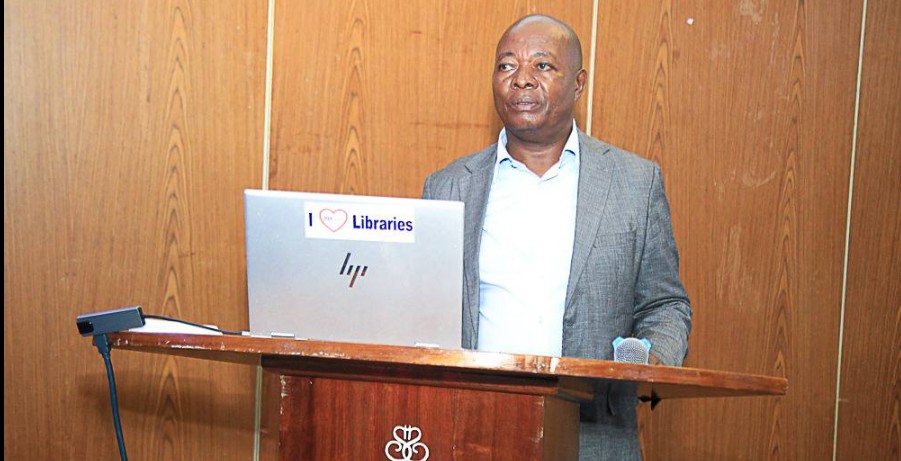Treasury revives plan to grant KRA real-time access to personal data in push for more tax

The move comes barely a year after similar proposals in the Finance Bill, 2024 were dropped following fierce resistance from the public and civil rights groups, culminating in violent youth-led protests that saw the Parliament building breached.
The National Treasury has revived a controversial proposal seeking to grant the Kenya Revenue Authority (KRA) access to personal data held by businesses, a move aimed at expanding the tax base by enabling real-time monitoring of transactions.
In the Draft Finance Bill, 2025, the Treasury proposes scrapping a section of the Tax Procedures Act that prohibits the KRA from demanding integration with business systems holding personal or sensitive customer information. If enacted, this change would allow the taxman to obtain transactional data collected by businesses in real time, even if it contains private customer details.
More To Read
- KRA waives Sh158 billion in penalties for 2.9 million taxpayers in amnesty programme
- KRA launches new patrol boat to combat smuggling in Kenyan waters
- Relief for Kenyan employees as KRA reduces fringe benefits tax to lowest level since 2023
- National Treasury seeks Sh17.6 billion to settle mounting debts owed to KRA
Currently, Section 59A (1B) of the Tax Procedures Act explicitly bars the KRA from requiring businesses to share data that relates to trade secrets or personal information collected or held on behalf of customers. This protection was included to safeguard sensitive customer and proprietary data when integrating electronic tax systems with the KRA’s iTax platform.
However, the Finance Bill, 2025 proposes to delete this subsection, potentially granting the KRA unrestricted access to such data without a court-issued warrant.
“Section 59A of the Tax Procedures Act is amended by deleting subsection (1B),” reads the Finance Bill, 2025, which has been tabled in the National Assembly.
This effort marks the Treasury’s latest attempt to eliminate legal barriers that prevent the KRA from directly linking its systems with those of businesses.
The move comes barely a year after similar proposals in the Finance Bill, 2024 were dropped following fierce resistance from the public and civil rights groups, culminating in violent youth-led protests that saw the Parliament building breached.
The Tax Law (Amendment) Act, 2024, which came into effect on December 27 last year, had allowed the KRA to integrate its systems with corporates, including banks, but expressly barred access to data classified as trade secrets or personal customer information. The latest proposal seeks to remove this safeguard.
Unfettered access
In its earlier bid, the Treasury had sought to amend the Data Protection Act, 2019 to grant the KRA unfettered access to sensitive data held by data controllers and processors. These included banks, telecom firms, utilities, schools, land registries and the National Transport and Safety Authority, without needing a court-issued warrant.
However, the National Assembly’s Finance Committee, chaired by Molo MP Kuria Kimani, rejected the clause at the time.
“The committee notes that the proposal to allow the KRA access to personal data as proposed may not meet the threshold under Articles 31(c) and (d) of the Constitution of Kenya,” Kuria said.
“Additionally, the committee observed that Section 51 of the Data Protection Act outlines the circumstances under which exemptions might apply. Further, Section 60 of the Tax Procedures Act empowers the commissioner or an authorised officer with a warrant to have full access to any data for the purposes of administering a tax law.”
The move drew criticism from several civil society organisations, including the Law Society of Kenya (LSK) and Amnesty International Kenya, which called for the provision to be struck out of the 2024 Finance Bill. They described the proposal as “unconstitutional” and a threat to the right to privacy.
The Treasury’s decision to bring back the clause in the Finance Bill, 2025, under the leadership of Cabinet Secretary John Mbadi, is expected to spark fresh resistance.
Boost revenue collection
The government maintains that the proposal is part of a broader strategy to boost revenue collection through administrative reforms aimed at sealing loopholes and enhancing tax enforcement.
The Bill, if passed, would help the government raise an estimated additional Sh302 billion in revenue, primarily by giving the KRA enhanced access to information needed to catch tax cheats.
At the same time, the Bill proposes to reinstate powers for the Cabinet Secretary for the National Treasury to waive penalties or interest on tax liabilities. This authority was removed in the Finance Act, 2023, due to concerns over potential abuse and lack of transparency.
However, under a new provision, the CS may grant waivers where the penalties or interest stem from system-related issues, such as electronic tax system errors, delays in data updates, duplicated charges due to malfunctions, or incorrect taxpayer registration.
“(5A) The Cabinet Secretary may, on the recommendation of the Commissioner, waive the whole or part of any penalty or interest imposed under this Act where the liability to pay the penalty or interest was due to: (a) an error generated by an electronic tax system; (b) a delay in the updating of an electronic tax system; (c) a duplication of a penalty or interest due to a malfunction of an electronic tax system; or (d) the incorrect registration of the tax obligations of a taxpayer,” reads the Bill.
Simpler rollout schedule
The Finance Bill, 2025, also proposes a simpler rollout schedule by scrapping the three-tier implementation approach used in previous years. Most provisions are set to come into effect on July 1, 2025.
Only two clauses have been deferred to January 1, 2026, while none are scheduled for September 1 implementation.
The Bill also proposes to remove several products and services from the list of VAT zero-rated items and instead classify them as VAT-exempt. These include raw materials supplied to pharmaceutical manufacturers, the transport of sugarcane from farms to mills, and locally assembled or manufactured mobile phones. Also affected are electric bicycles, solar and lithium-ion batteries and inputs for animal feed production.
Under the current zero-rated system, suppliers are not taxed at the point of sale and can claim refunds on VAT paid for inputs. However, if the items are reclassified as VAT-exempt, businesses will lose the ability to claim input tax credits, increasing production costs, likely to be passed on to consumers.
In a move to tighten VAT compliance, the Bill introduces penalties for buyers who purchase or import exempt or zero-rated goods but later use them in ways that contradict their tax classification.
Top Stories Today











































